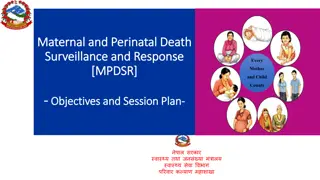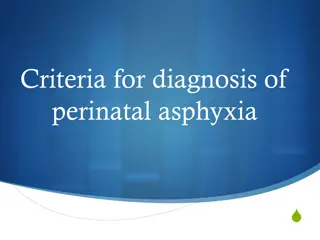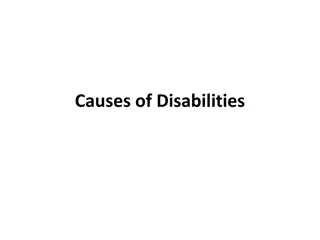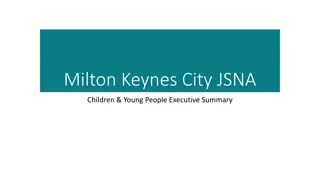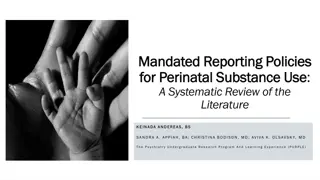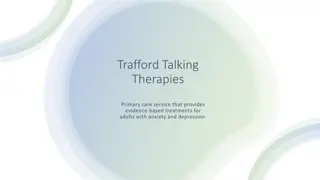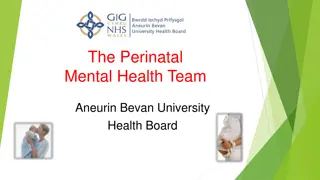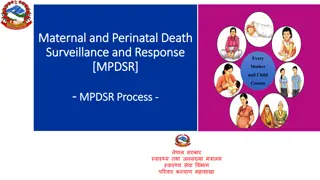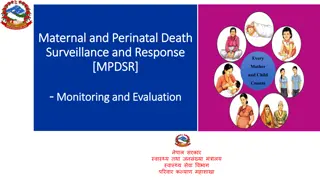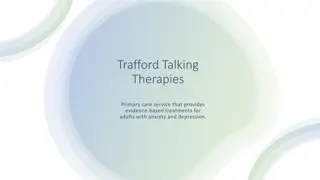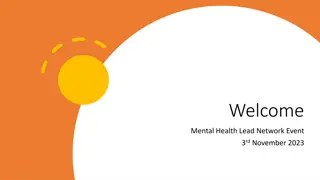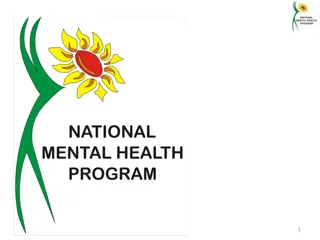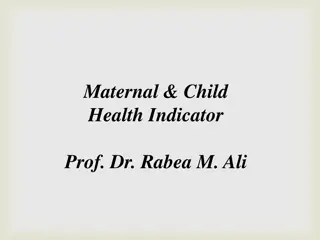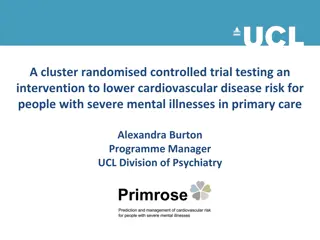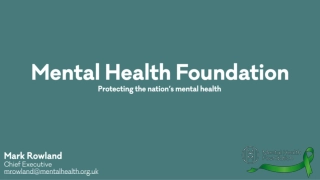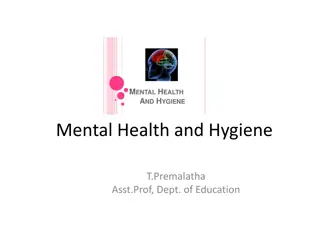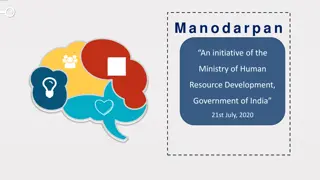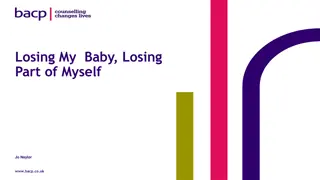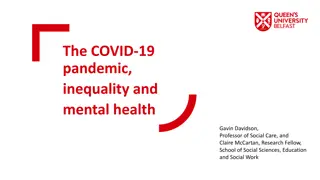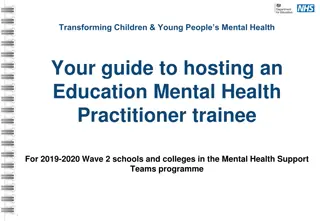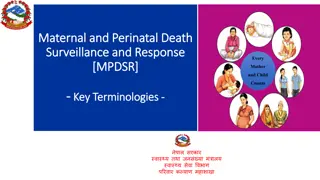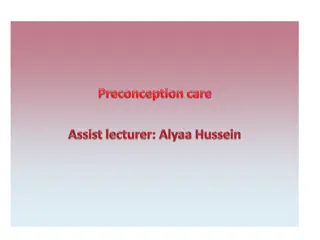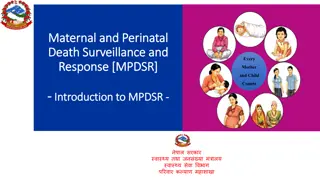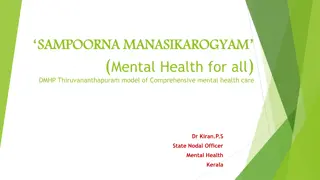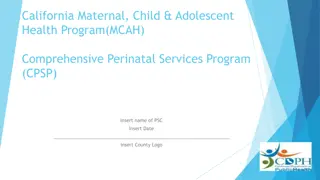Understanding Perinatal Mental Health Teams and Risk Factors
Explore the role and importance of perinatal mental health teams in providing specialized support during pregnancy and postpartum. Learn about red flags, risk factors, and interventions to address mental health concerns in perinatal period. Understand the prevalence of mental illness among pregnant women and new mothers, with a focus on early intervention and prevention strategies.
Download Presentation

Please find below an Image/Link to download the presentation.
The content on the website is provided AS IS for your information and personal use only. It may not be sold, licensed, or shared on other websites without obtaining consent from the author. Download presentation by click this link. If you encounter any issues during the download, it is possible that the publisher has removed the file from their server.
E N D
Presentation Transcript
The Specialist Community Perinatal Mental Health Service (SCPNS) Leanne Ellaway, Social Work Lead and Jools Granville 18thOctober 2021
Aims and Objectives To understand the role of the perinatal mental health team and how to refer To understand why perinatal teams exist and interventions that can be provided Increase awareness of risk factors and red flags To identify good practice as well as things to avoid To have an opportunity to listen to someone with lived experience
BNSSG Perinatal team BNSSG Multi disciplinary Opened March 6th2017 Eligibility / criteria not a crisis team Open: Monday Friday (9am 5pm) awp.perinatalmentalhealthservice@nhs.net 0117 919 5826
Why do perinatal teams exist? Early intervention High risk suicide leading cause of death for pregnant women and those up to 1 year post birth Pregnancy does not protect against maternal mental health Risk of relapse Specialised support and interventions
Red flags New onset of violent thoughts e.g. hanging, drowning Difficulties bonding and/or estrangement from baby Change in mental state in the perinatal period or new emergence of symptoms Post partum psychosis agitation, confusion, irritability, insomnia, restlessness, hallucinations, delusions MBRRACE Report 2015 & 2018 - Saving Lives, Improving Mothers Care
FACTS Women are 23 times more likely to experience a psychotic episode perinatally than at any other time in their lives (Platz & Kendell, 1988) More than 1 in 10 women develop a mental illness during pregnancy or in the first year after having a baby 7 in 10 women underplay the severity of their mental illness (MBRACE)
Fact: Majority of suicides are by violent means and almost evenly distributed across the postnatal period. However, 13% of suicides occurred in pregnancy. Methods of suicide in 2018 report include hanging, drug toxicity, falling from a great height, being hit by a train & suicidal stabbing. MBRRACE Reports 2015 (2009 2013), 2018 (2014 2016), 2019 (2015 2017)
Do Listen to what service users and families are saying Gather information e.g. how long, new symptoms Include observations Be transparent Explain your thinking Gain consent to refer for specialist support Low threshold for referral Assess and reassess is this a true picture Consider the impact of stigma If you are unable to obtain consent but you are very worried then you may wish to override this based on risk e.g. PPP
Do not Put difficulties down to baby blues , lack of sleep, difficulties feeding these can be early warning signs Make assumptions Ignore the risk Make promises Keep concerns to yourself
Interventions Specialist assessment Pre conception clinic / advice to GP s Care co-ordination 32 week plan Referrals and signposting e.g. MBU Psychology Parent infant work Nursery nurse support Crisis and contingency planning Medical interventions Adjunct working Social work/safeguarding advice - freedom
If you are worried, would like advice or wish to make a referral: Consent Complete referral form all information Send it to awp.perinatalmentalhealthservice@nhs.net Or Just call between 9 to 5 for advice
Additional resources https://www.youtube.com/watch?v=Unid96ezWwI https://youtu.be/3xTfgAMjC7Q



